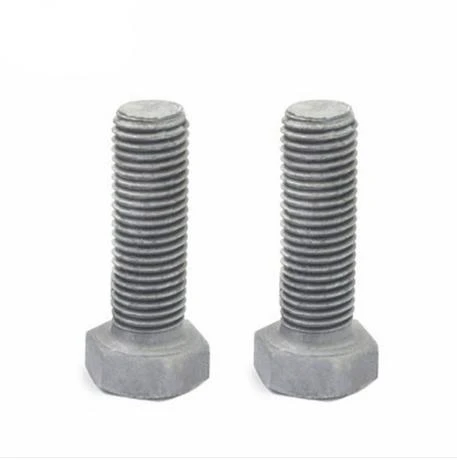

automotive flange nuts
Dec . 20, 2024 19:52 Back to list
automotive flange nuts
The Importance of Automotive Flange Nuts in Vehicle Assembly
Automotive engineering is a complex field that encompasses numerous components working in harmony to ensure the performance, safety, and reliability of vehicles. One of the lesser-discussed yet vital components in this system is the flange nut. These seemingly simple fasteners play a critical role in the assembly and integrity of various automotive parts.
What is a Flange Nut?
A flange nut is a type of nut that features an integrated flange at one end. This flange provides a larger bearing surface, distributing the load over a wider area, which can prevent damage to the materials that the nut is securing. Flange nuts come in various designs, sizes, and materials, making them versatile for different applications in the automotive industry.
Applications of Flange Nuts in Automotive Engineering
Flange nuts are commonly used in various applications throughout a vehicle. They are primarily utilized in securing components such as the engine, transmission, suspension systems, and wheels. The flange design helps in reducing the risk of loosening due to vibrations, a common concern in automotive settings.
1. Engine Assembly In the engine compartment, flange nuts secure components like the cylinder head, oil pan, and exhaust manifold. These parts are subjected to high temperatures and pressures, requiring robust fastening solutions. The flange design helps to ensure these components remain tightly secured, which is critical for engine performance.
2. Suspension Systems The suspension system is crucial for vehicle stability and handling. Flange nuts are used to attach various components in this system, such as control arms and cross members. Their load-distributing properties help to withstand the forces encountered during driving, thus enhancing vehicle safety.
3. Wheels Flange nuts are also utilized to secure wheels to the wheel hubs. The flange helps to provide extra grip and resistance to loosening, which is vital given the dynamic forces exerted on wheels during vehicle operation.
Benefits of Using Flange Nuts
The benefits of using flange nuts in automotive applications are numerous
automotive flange nuts

- Vibration Resistance One of the primary advantages of flange nuts is their ability to resist loosening due to vibrations. This quality is particularly important in vehicles where constant movement and vibrations can cause traditional nuts to come loose over time.
- Load Distribution The wide flange of the nut distributes load over a larger surface area, which minimizes the risk of damage to softer materials. This feature is essential in automotive assembly, where materials may vary in strength and durability.
- Ease of Installation Flange nuts are also easier to install than traditional nuts, particularly in applications where space is limited. Their design allows for straightforward alignment and secure fastening, which can streamline the assembly process.
Considerations for Flange Nut Selection
When selecting flange nuts for automotive applications, several factors should be considered
- Material Flange nuts can be made from various materials, including steel, stainless steel, and aluminum. The choice of material should depend on the specific application requirements, including factors such as corrosion resistance, weight, and strength.
- Size and Thread Pitch It’s essential to ensure the correct size and thread pitch when selecting flange nuts to fit the corresponding bolts or screws. Using incorrect sizes can lead to ineffective fastening and potential safety issues.
- Coating Many manufacturers apply coatings to flange nuts to enhance their corrosion resistance and overall durability. For example, zinc-plated or galvanizing coatings can provide additional protection, especially in environments prone to moisture and chemicals.
Conclusion
In summary, automotive flange nuts are crucial components that contribute significantly to vehicle performance, safety, and durability. Their unique design provides advantages that traditional nuts do not offer, such as vibration resistance and load distribution. As the automotive industry continues to evolve with advanced materials and engineering techniques, the role of flange nuts remains vital in ensuring the integrity and longevity of vehicles. Understanding their uses and benefits can help engineers and manufacturers make informed decisions, ultimately contributing to the development of safer and more reliable automotive technology.
Latest news
-
Hot Dip Galvanized Bolts-About LongZe|High Strength, Corrosion Resistance
NewsJul.30,2025
-
High-Strength Hot Dip Galvanized Bolts - Hebei Longze | Corrosion Resistance, Customization
NewsJul.30,2025
-
Hot Dip Galvanized Bolts-Hebei Longze|Corrosion Resistance&High Strength
NewsJul.30,2025
-
High-Strength Hot-Dip Galvanized Bolts-Hebei Longze|Corrosion Resistance&High Strength
NewsJul.30,2025
-
Hot Dip Galvanized Bolts-Hebei Longze|Corrosion Resistance&High Strength
NewsJul.30,2025
-
Hot Dip Galvanized Bolts - Hebei Longze | Corrosion Resistance, High Strength
NewsJul.30,2025

